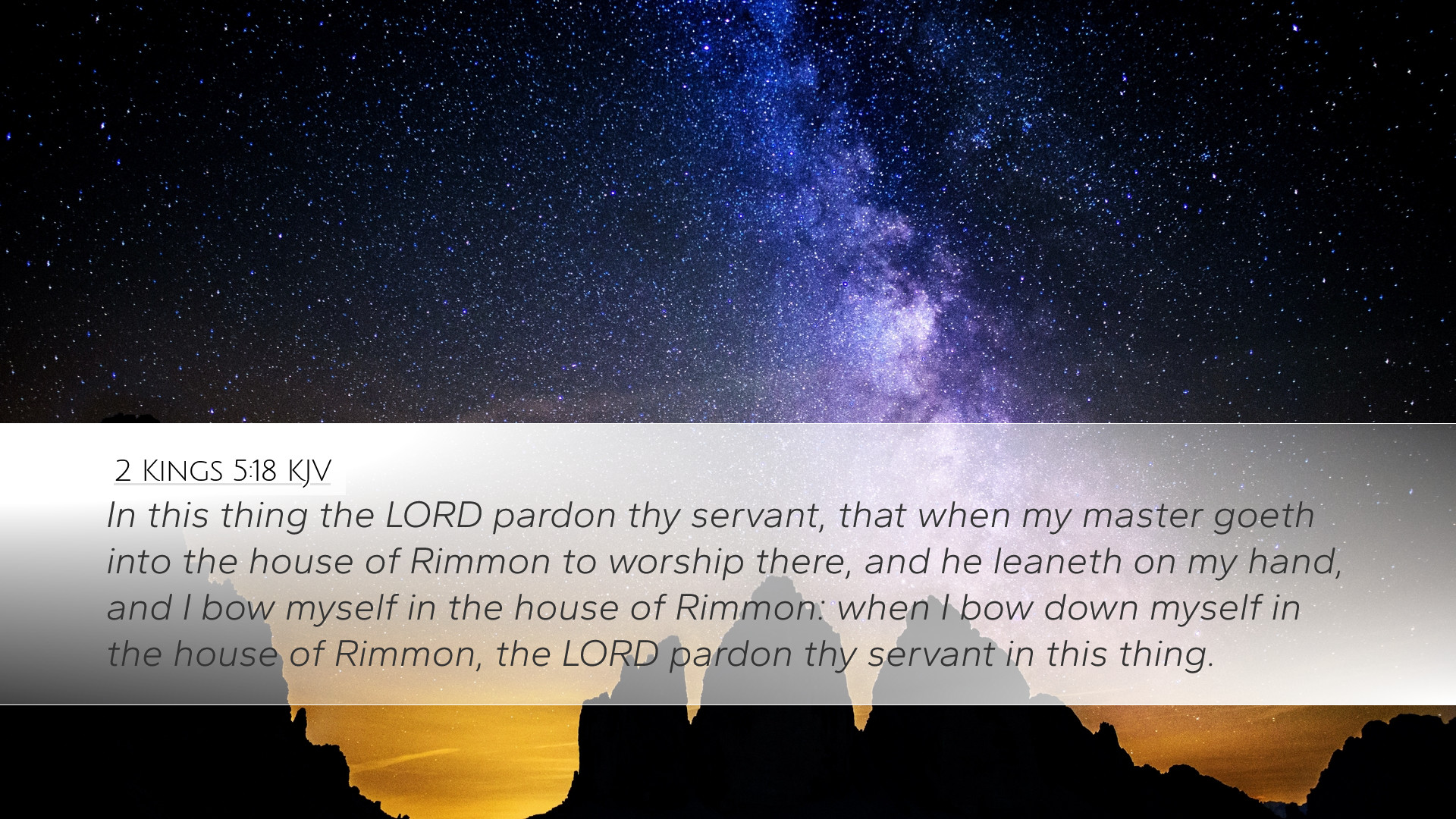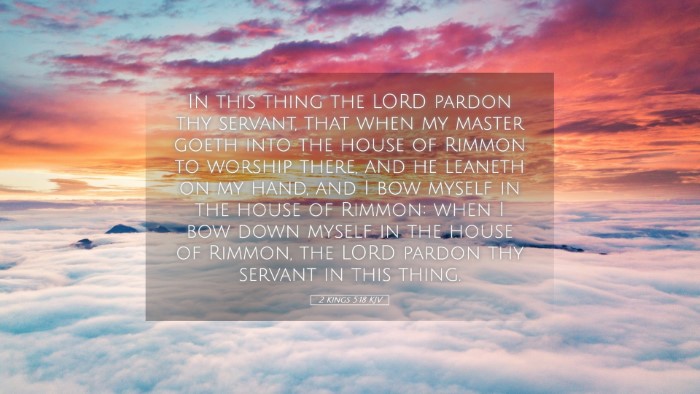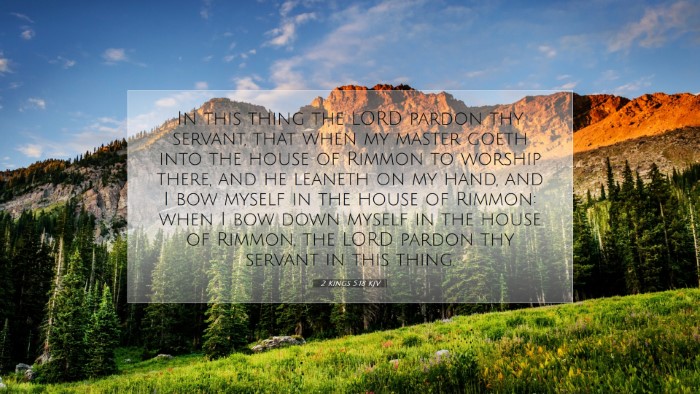Commentary on 2 Kings 5:18
2 Kings 5:18 presents a profound moment in the narrative of Naaman, the Syrian commander who was healed of leprosy by the prophet Elisha. This verse falls within a larger context that intricately weaves themes of faith, healing, humility, and the recognition of God’s sovereignty.
Verse Text
2 Kings 5:18 (KJV): “In this thing the LORD pardon thy servant, that when my master goeth into the house of Rimmon to worship there, and he leaneth on my hand, and I bow myself in the house of Rimmon: when I bow down myself in the house of Rimmon, the LORD pardon thy servant in this thing.”
Contextual Background
In the preceding verses, we read about Naaman, a commander of the army of the king of Syria, who was afflicted with leprosy. His journey to the prophet Elisha symbolizes a broader narrative of the Gentiles encountering the living God. Upon his miraculous healing, Naaman expresses gratitude and a desire to serve the true God of Israel.
Theological Themes
- Healing and Gratefulness: Naaman acknowledges the miraculous power of God and the divine intervention that altered his life.
- Faith and Cultural Dissonance: Naaman’s struggle with engaging his cultural practices—specifically, the act of bowing in the house of Rimmon—highlights the tension between faithfulness to God and cultural expectations.
- God’s Mercy: The plea for pardon demonstrates the awareness of God's grace and the human tendency to sinfulness in the face of conflicting loyalties.
Commentary Insights
Matthew Henry’s Commentary
Matthew Henry emphasizes Naaman’s sincere desire for mercy and understanding. He notes that Naaman’s request for God’s pardon reflects deep humility. Although he had been healed, he recognizes the potential for conflict between his obligations as a servant of the king and his newfound faith in the God of Israel. Henry's insights point towards the internal struggle faced by believers who operate within secular environments.
Albert Barnes’ Commentary
Barnes expands on the implications of bowing in worship to Rimmon, stressing that it signifies the conflict between the worship of God and the cultural idolatry of the time. He argues that Naaman's request for pardon is indicative of his understanding of God's omnipresence and his desire to worship authentically. Barnes highlights that this request illuminates God's grace, as Naaman seeks forgiveness for actions compelled by his societal position while maintaining his newfound faith.
Adam Clarke’s Commentary
Clarke tackles the concept of servant leadership and loyalty present in Naaman’s anxiety over his actions. He suggests that Naaman’s role as the king’s servant creates a moral dilemma, a challenge that mirrors the struggles believers encounter in contexts where faith may clash with duty. Clarke’s commentary also emphasizes the difference between external actions and internal faith, suggesting that God looks upon the heart rather than the mere ritualistic actions.
Pastoral Applications
This verse invites pastoral reflection on the nature of worship and duty. It compels leaders to consider how their congregants navigate similar dilemmas in their daily lives. Naaman’s story encourages ministers to facilitate discussions on the coexistence of faith and culture, illustrating that seeking God’s pardon is a continual process in the life of a believer.
Scholarly Reflections
The complexities found in 2 Kings 5:18 invite theologians to explore deeper themes of redemptive history. The interaction between Naaman’s cultural identity and his newfound faith in God demonstrates a shift towards an inclusive understanding of God’s grace, which extends to all nations. Scholars are invited to examine the implications of this narrative for contemporary discussions on faith in multi-faith contexts.
Conclusion
In conclusion, 2 Kings 5:18 serves as a compelling reminder of the multi-faceted experience of faith within cultural constraints. The commentaries of Matthew Henry, Albert Barnes, and Adam Clarke provide rich insights that inform our understanding of this pivotal moment. As believers grapple with the intersection of faith and culture, the plea for God's pardon resonates as a call to authenticity in worship and steadfastness in faith.


